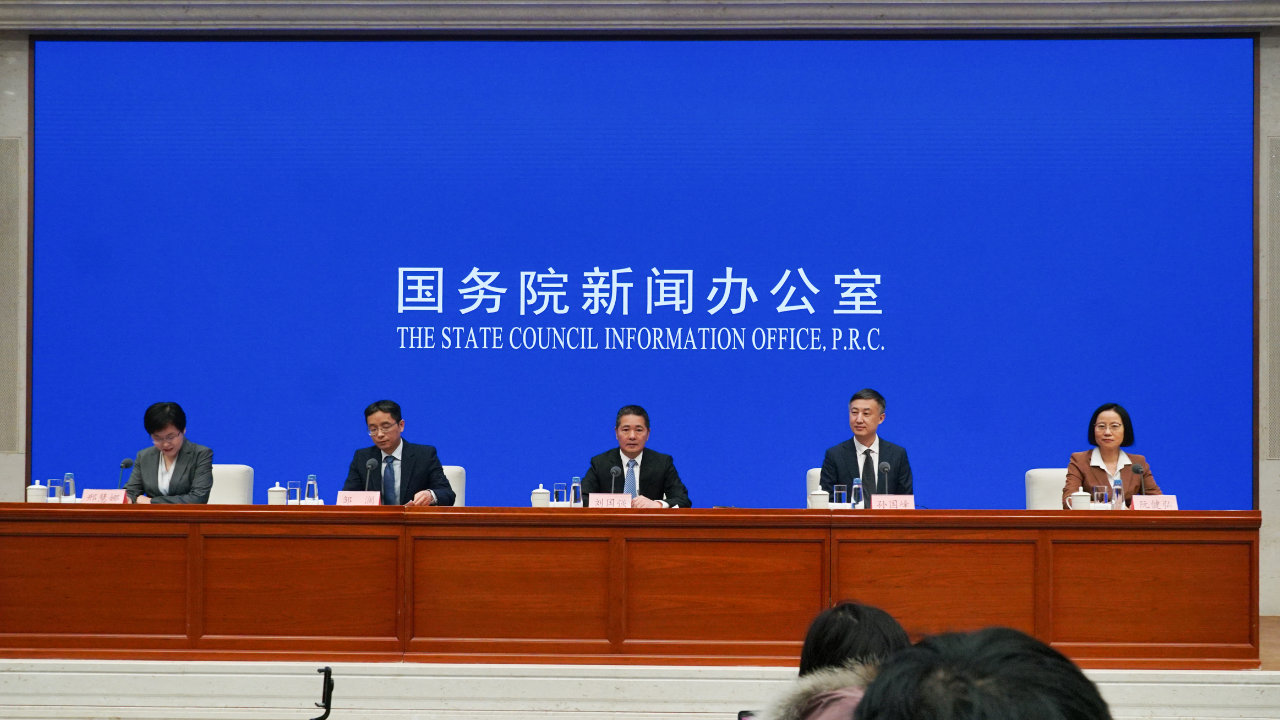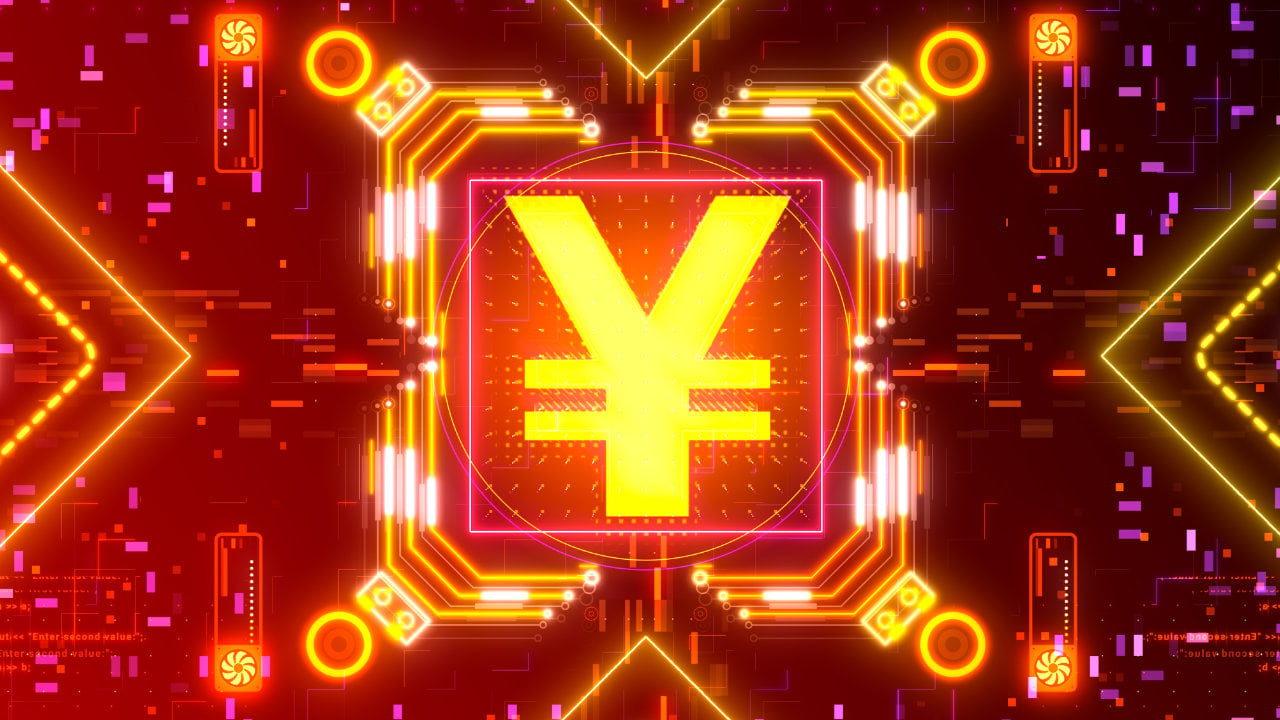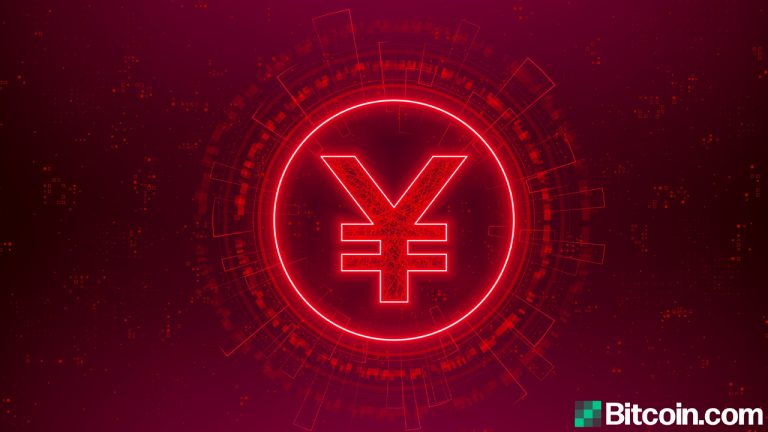 China’s central bank digital currency now has 261 million unique users, according to an official of the central bank, the People’s Bank of China (PBOC). Furthermore, transactions worth 87.5 billion yuan ($13.78 billion) have been made using the digital yuan and more than 8 million merchants now accept e-CNY. China’s Central Bank Digital Currency Growing […]
China’s central bank digital currency now has 261 million unique users, according to an official of the central bank, the People’s Bank of China (PBOC). Furthermore, transactions worth 87.5 billion yuan ($13.78 billion) have been made using the digital yuan and more than 8 million merchants now accept e-CNY. China’s Central Bank Digital Currency Growing […] China’s central bank has released its digital currency wallet app ahead of the Winter Olympics. The wallet app for the digital yuan, also known as e-CNY, can now be downloaded from the iOS and Android app stores in the country. Digital Yuan Wallet App Now Downloadable From iOS and Android App Stores China’s central bank, […]
China’s central bank has released its digital currency wallet app ahead of the Winter Olympics. The wallet app for the digital yuan, also known as e-CNY, can now be downloaded from the iOS and Android app stores in the country. Digital Yuan Wallet App Now Downloadable From iOS and Android App Stores China’s central bank, […] China, the world’s most populous country, has jumped leaps and bounds in comparison to a great number of other countries when it comes to the creation of a central bank digital currency. As each day passes, China’s digital yuan is seemingly getting closer to large-scale adoption, as big-name corporations like the e-commerce giant JD.com, Mastercard, […]
China, the world’s most populous country, has jumped leaps and bounds in comparison to a great number of other countries when it comes to the creation of a central bank digital currency. As each day passes, China’s digital yuan is seemingly getting closer to large-scale adoption, as big-name corporations like the e-commerce giant JD.com, Mastercard, […]
Chinese e-commerce company JD.com has upped its support for the country’s central bank digital currency.
JD.com has been using China’s Digital Currency Electronic Payment, or DCEP, system to pay the salaries of some employees since January.
The e-commerce firm revealed the news on Sunday while announcing its participation in the one-year DCEP trial show at the fourth Digital China Summit in Fuzhou slated for April 25 and 26.
Commenting on its digital yuan adoption journey, the company stated that apart from paying staff salaries, JD has also utilized the DCEP in business-to-business payments to partner firms as well as cross-bank settlements.
As previously reported by Cointelegraph, JD Technology and Digital Currency Research Institute — the company’s fintech arm — has been a DCEP development partner with the People’s Bank of China since September 2020.
In December, the online retailer began accepting the digital yuan as a payment method on its website. According to a previous Cointelegraph report, JD.com received almost 20,000 DCEP-funded orders during the first week of adoption.
JD has also supported DCEP trials, contributing about $4.6 million to Suzhou’s second public lottery event back in February. Commenting on the company’s continued support for the digital yuan, Fei Peng, the DCEP head at JD Tech said, “JD Technology will continue to combine strengths in the supply chain, omnichannel scenarios, advanced technology, and client service experience to contribute more to the DC/EP ecosystem.”
Meanwhile, JD’s continued support for the digital yuan puts AliPay and WeChat Pay’s absence from several DECP trials into even more stark relief. From ride-hailing services like DiDi Chuxing to streaming platforms like Bilibili, several firms are involved in testing China’s CBDC except for the two largest payment gateways in the country.
Opinions over whether the DCEP will seek to challenge the AliPay–WeChat Pay duopoly in China’s electronic payment market remain mixed. Back in October 2020, Zhou Xiaochuan, a former PBoC governor, argued that the digital yuan was the central bank’s counter to the dollarization of the economy.

Leading Chinese banks are promoting the digital yuan over Alipay and WeChat Pay for an upcoming shopping festival in China.
Some of China’s largest state banks are actively promoting the digital yuan as a superior means of payment to the country’s two leading payment providers, Alipay and WeChat Pay.
In an April 26 report, Reuters revealed that six of China’s largest banks are promoting China’s nascent central bank-issued digital currency, or CBDC, in Shanghai ahead of an online shopping festival on May 5.
The banks are urging retail outlets and consumers to download the digital wallet and make purchases using the CBDC, or e-CNY. This would bypass the current payment methods of choice for millions of shoppers – Ant Group’s Alipay and Tencent’s WeChat Pay.
The report noted that one bank official appointed to CBDC trial’s rollout in Shanghai under the guidance of the People’s Bank of China specifically described the digital currency as superior to Alipay and WeChat Pay, who stated:
“People will realise that digital yuan payment is so convenient that I don't have to rely on Alipay or WeChat Pay anymore.”
Speaking at an online panel discussion in late March, the head of the PBoC's digital currency research institute, Mu Changchun, stated that Alipay and WeChat Pay account for 98% of the mobile payment market in China, posing risks to the domestic financial system should they experience any issues.
Changchun noted the central bank does not intend to compete directly with Alipay and WeChat Pay, but acts as a backup to “ensure financial stability in case something happens” to them.
However, the state has also been increasing efforts to curtail tech giant dominance and clamp down on anticompetitive behavior in the internet sector. In early April, the government hit Alibaba with a record fine of $2.8 billion for monopolistic practices according to CNN.
The rollout of China’s digital yuan will allow the central government to gain control over a share of the massive troves of financial data that are being hoarded by the country’s top payment providers.
“Big data is wealth. Whoever owns data thrives,” another banking official tasked with promoting the CBDC told Reuters, adding: “WeChat Pay and Alipay own an ocean of data,”
Commenting during the Consensus conference in May 2020, academic Martin Chorzempa stated it is “difficult” for Chinese financial regulators to compel the country’s top payments firms to hand over the data they have collected on their customers. “[China’s CBDC] could potentially allow that central bank to get a lot more access to payment data and also to gain back some power from these companies,” he added.
The six banks in the CBDC pilot schemes comprise the country's largest lenders, including The Industrial and Commercial Bank of China, Agricultural Bank of China, Bank of China, HSBC, and China Construction Bank.
On April 1, China completed its first cross-border pilot of the digital yuan with Hong Kong.

Coinbase and cryptocurrencies viewed cynically on Chinese social media, and news of a large mining GPU smuggling bust in Hong Kong.
It was a relatively quiet week in China’s blockchain space as events were overshadowed by the surge in the BTC price and the Coinbase direct listing in the U.S. Many locals reacted with surprise to the news, showing that exposure to cryptocurrencies is still relatively isolated in the world’s most populous country.
Many netizens responded skeptically to the Coinbase story, with news aggregation account “Jiemian” on Weibo calling Bitcoin a scam, highlighting its connection to terrorists, and encouraging investors to stick to China’s A-shares. (For a quick comparison, the Shanghai composite index is down 2.13% this year, while Bitcoin has a YTD return of over 116%.) Jiemian has over 10 million followers on Weibo, but caters to a more traditional audience. The takeaway here is that despite China’s aggressive adoption of DCEP (Digital Currency Electronic Payment, also known as the digital yuan), other digital payments, and internet technology, cryptocurrency acceptance remains relatively isolated.
Some experts on China’s blockchain industry spoke to Cointelegraph regarding DCEP on April 10th, discussing how the digital yuan has affected the space. Kevin Shao, co-founder of Bitrise Capital, summed up the situation by stating that “overall, China’s digital currency still serves the central bank’s monetary policy and monetary functions.” It’s safe to say that the rapid DCEP advancement has little cross-over with the country’s active blockchain space, and probably will remain independent for the foreseeable future.
While all that was going on, volumes were spiking on cryptocurrency exchanges around the world. Huobi, China’s largest exchange by liquidity, experienced a wave of trading on more established tokens. The top seven most traded on Thursday were BTC, DOGE, ETH, XRP, FIL, TRX and BCH. All of these projects have roots in previous bull runs, showing that nostalgia is not lost on Chinese investors.
Customs in Hong Kong have busted a smuggling operation involving nearly 300 graphics cards, which are suspected to be Nvidia CMP 30HX models and worth about 2 million RMB, or $300,000. There were no labels on the front of the graphics cards, and this particular model comes without a video output port, and is built exclusively for cryptocurrency mining. According to a source, this is the first time that Hong Kong Customs has seized graphics cards smuggled for the purpose of mining.
Finally, in policy news, The State Administration of Radio, Film and Television issued standards for blockchain-related media content. The standard system is intended to promote healthy and sustainable content pertaining to the use of blockchain in industries such as auditing systems, business processes, food safety and management. The State Administration is very proactive with its standards, detailing how technologies, trends, and other themes should be portrayed in the media.
This weekly roundup of news from Mainland China, Taiwan, and Hong Kong attempts to curate the industry’s most important news, including influential projects, changes in the regulatory landscape, and enterprise blockchain integrations.